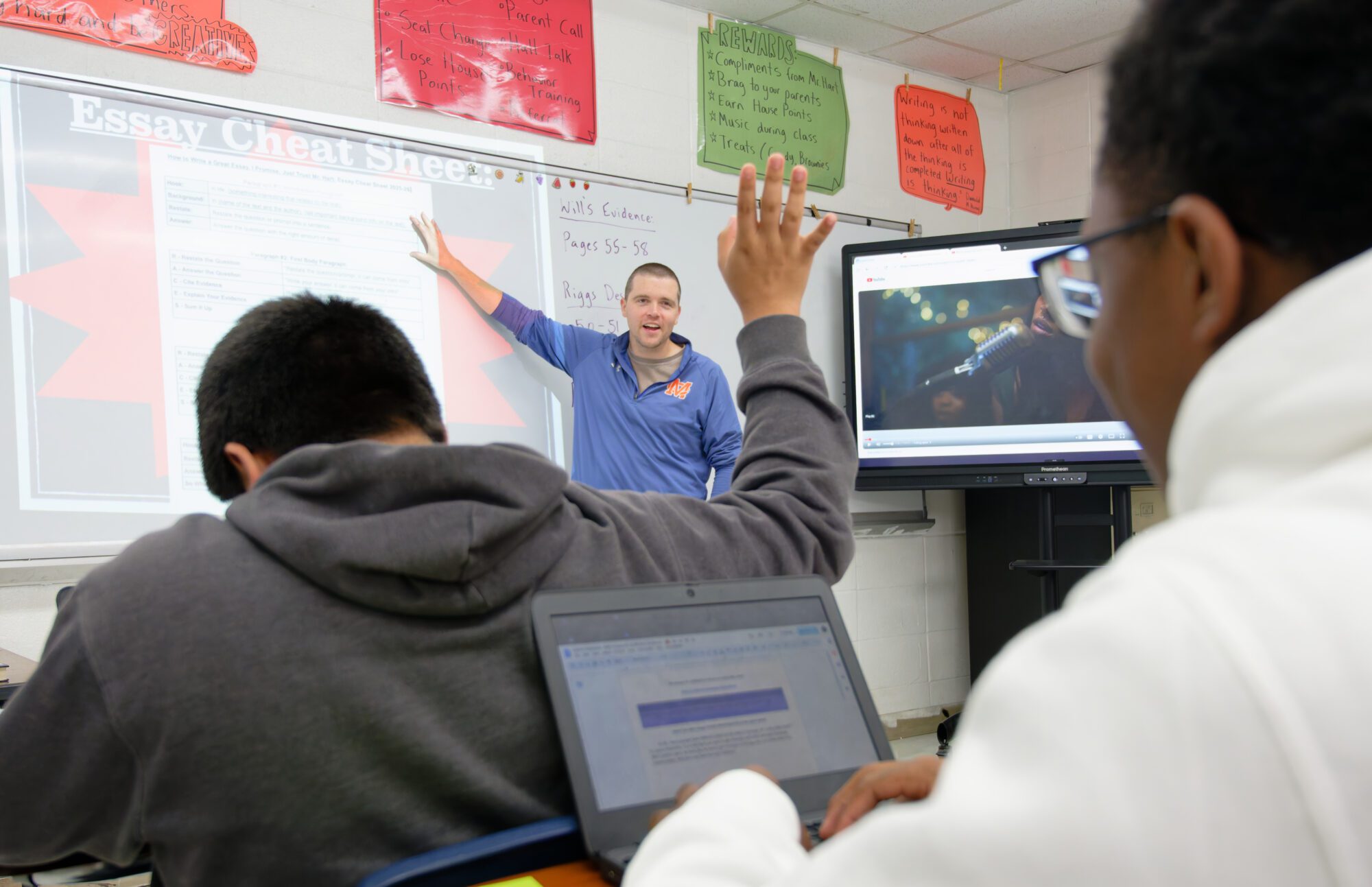Report on Adult Literacy Initiatives in Manatee County and Alignment with Sustainable Development Goals
A significant educational challenge persists in Manatee County, where one in five adults possesses literacy skills below a fifth-grade level. This issue presents a substantial barrier to achieving several key United Nations Sustainable Development Goals (SDGs). The Manatee Literacy Council is actively addressing this deficit through targeted programs and community engagement.
Challenges to Sustainable Development
Low adult literacy directly impedes progress towards a sustainable and equitable society. The inability to perform essential reading and writing tasks creates a cycle of disadvantage that affects individuals, families, and the community’s overall economic health. This challenge is directly linked to several SDGs:
- SDG 1 (No Poverty) & SDG 8 (Decent Work and Economic Growth): Limited literacy restricts access to stable, higher-paying employment, perpetuating poverty and hindering economic growth.
- SDG 4 (Quality Education): The issue represents a critical gap in lifelong learning opportunities, specifically Target 4.6, which aims to ensure all adults achieve literacy.
- SDG 10 (Reduced Inequalities): Literacy gaps exacerbate social and economic inequalities, as individuals are unable to fully participate in society or access essential services.
The generational impact is particularly concerning, as children of parents with low literacy have a 72% probability of attaining lower reading levels, thereby failing to break the cycle of educational disadvantage.
Manatee Literacy Council: Programmatic Response
Established in 1978, the Manatee Literacy Council provides free, confidential services designed to advance literacy and support community development goals. The organization’s efforts are a direct local implementation of the global SDG agenda.
Alignment of Programs with Specific SDGs
Advancing SDG 4: Quality Education
The Council’s core mission is to provide inclusive and equitable quality education and promote lifelong learning opportunities for all. Its programs are structured to meet this goal:
- Virtual and in-person adult literacy classes
- Individual tutoring sessions
- Family literacy programs to combat intergenerational illiteracy
Fostering SDG 8 (Decent Work) and SDG 1 (No Poverty)
By equipping adults with essential skills, the Council empowers them to secure better employment, thereby contributing to poverty reduction and sustainable economic growth.
- Workplace Literacy: This program provides skills necessary for job acquisition and advancement.
- Improved Daily Functioning: Enhanced literacy enables individuals to fill out job applications, manage personal finances, and navigate public services, removing critical barriers to economic stability.
Promoting SDG 10 (Reduced Inequalities) and SDG 16 (Peace, Justice and Strong Institutions)
The Council ensures its services are accessible to all residents, irrespective of race, creed, color, sex, national origin, or socioeconomic status, directly addressing the goal of reducing inequalities. Furthermore, its citizenship program strengthens civic engagement.
- U.S. Citizenship Test Preparation: This program empowers residents to become active and informed participants in civic life, contributing to stronger and more inclusive institutions.
Community Engagement for Sustainable Development
The annual “Flavors of Literacy” fundraiser, scheduled for Saturday, Nov. 8, from 11 a.m. to 2 p.m. at the Manatee River Garden Club, serves as a key initiative to secure funding for these vital programs. The event highlights cultural diversity while mobilizing community resources to support the local achievement of the SDGs.
Reported Outcomes
The impact of the Council’s programs demonstrates measurable progress toward sustainable development objectives. Participants have reported the following key achievements:
- Securing improved employment opportunities (Supports SDG 1 and SDG 8).
- Successfully passing the U.S. citizenship test (Supports SDG 16).
- Gaining the ability to read to children and grandchildren, breaking the generational cycle of low literacy (Supports SDG 4).
Sustainable Development Goals (SDGs) Addressed in the Article
- SDG 4: Quality Education – The article’s central theme is adult literacy, which is a core component of inclusive and equitable quality education.
- SDG 8: Decent Work and Economic Growth – The article links literacy skills directly to employment opportunities and economic improvement.
- SDG 10: Reduced Inequalities – The provision of free literacy services to all, regardless of background, aims to reduce social and economic inequalities stemming from illiteracy.
- SDG 1: No Poverty – By enabling adults to secure better jobs, the literacy programs implicitly address poverty reduction.
Specific SDG Targets Identified
-
Target 4.6: By 2030, ensure that all youth and a substantial proportion of adults, both men and women, achieve literacy and numeracy.
- Explanation: The article directly addresses this target by focusing on the Manatee Literacy Council’s mission “of helping adults learn to read.” It highlights the scale of the problem locally, stating that “One in five adults in Manatee County cannot read above a fifth-grade level,” which underscores the need for programs aimed at increasing the proportion of literate adults.
-
Target 4.4: By 2030, substantially increase the number of youth and adults who have relevant skills, including technical and vocational skills, for employment, decent jobs and entrepreneurship.
- Explanation: The article connects literacy to employment by mentioning the council offers “workplace literacy” programs. The success of these programs is demonstrated by the outcome that “many clients have secured better jobs,” showing a direct link between acquiring literacy skills and improving job prospects.
-
Target 10.2: By 2030, empower and promote the social, economic and political inclusion of all, irrespective of age, sex, disability, race, ethnicity, origin, religion or economic or other status.
- Explanation: The article points out that low literacy creates barriers to social and economic inclusion, affecting everyday tasks like “renting an apartment or visiting a doctor.” The Manatee Literacy Council directly promotes inclusion by providing “free and confidential services to adult residents regardless of race, creed, color, sex, national origin, or socioeconomic status” and by offering “U.S. citizenship test preparation,” which facilitates political inclusion.
Indicators for Measuring Progress
-
Indicator for Target 4.6: Adult Literacy Rate
- Explanation: The article provides a specific, localized indicator for adult literacy by stating, “One in five adults in Manatee County cannot read above a fifth-grade level.” This statistic (equivalent to a 20% illiteracy rate at that functional level) serves as a baseline measurement of the proportion of the adult population lacking functional literacy skills.
-
Indicator for Target 4.4: Number of participants securing improved employment
- Explanation: While not a formal statistic, the article implies this indicator by reporting that “many clients have secured better jobs” after participating in the programs. This outcome can be quantified to measure the program’s success in providing adults with skills relevant for employment.
-
Indicator for Target 10.2: Rate of successful citizenship test completion
- Explanation: The article mentions that the council provides “U.S. citizenship test preparation” and that clients have “passed citizenship tests.” The number or percentage of participants who successfully pass the test is a direct indicator of progress towards social and political inclusion for immigrants.
-
Indicator for Intergenerational Literacy (related to SDG 4): The literacy level of children of program participants
- Explanation: The article implies this indicator by highlighting the generational nature of illiteracy: “children of low-literate parents having a 72% chance of achieving lower reading levels.” A key measure of the program’s long-term success would be tracking and observing an improvement in the reading levels of children whose parents have become literate through the council’s services.
Summary of SDGs, Targets, and Indicators
| SDGs | Targets | Indicators |
|---|---|---|
| SDG 4: Quality Education | Target 4.6: Ensure that a substantial proportion of adults achieve literacy and numeracy. | The proportion of the adult population with low literacy skills (“One in five adults… cannot read above a fifth-grade level”). |
| SDG 8: Decent Work and Economic Growth | Target 4.4 (linked to SDG 8): Increase the number of adults who have relevant skills for employment and decent jobs. | The number of program participants who have “secured better jobs.” |
| SDG 10: Reduced Inequalities | Target 10.2: Empower and promote the social, economic and political inclusion of all. | The number of participants who have “passed citizenship tests.” |
Source: mysuncoast.com







